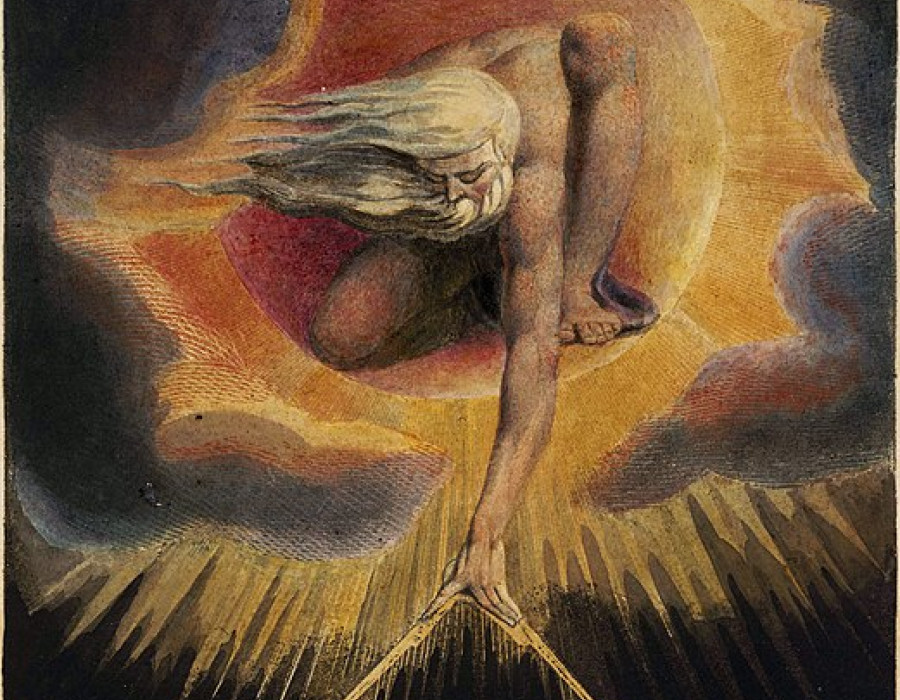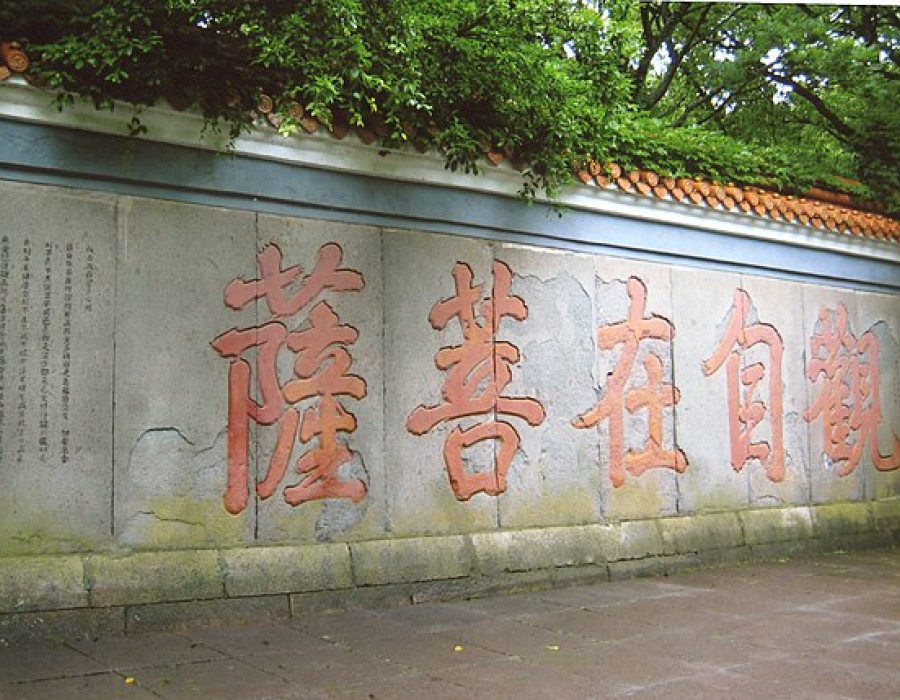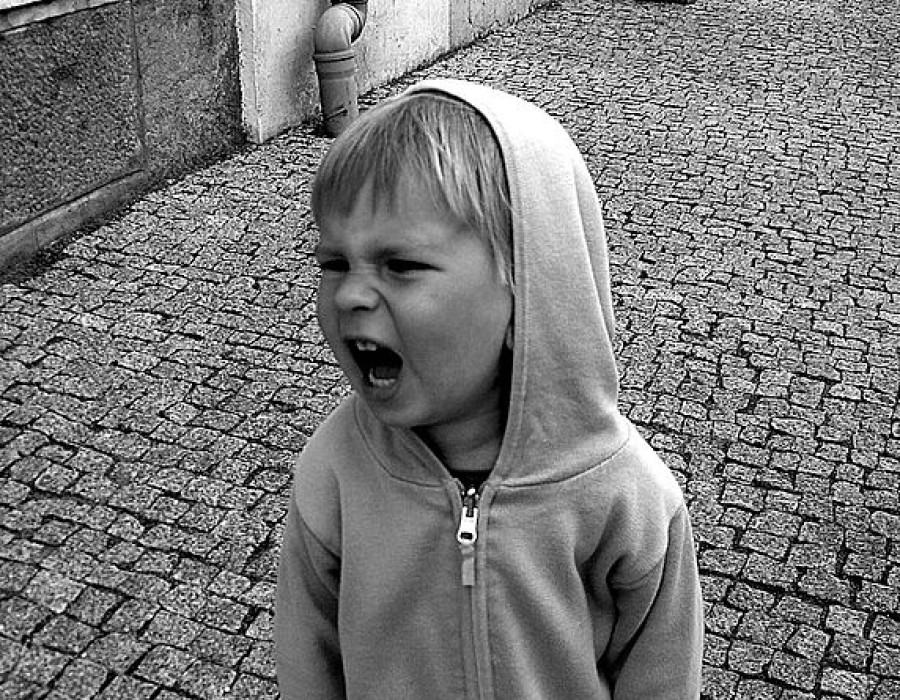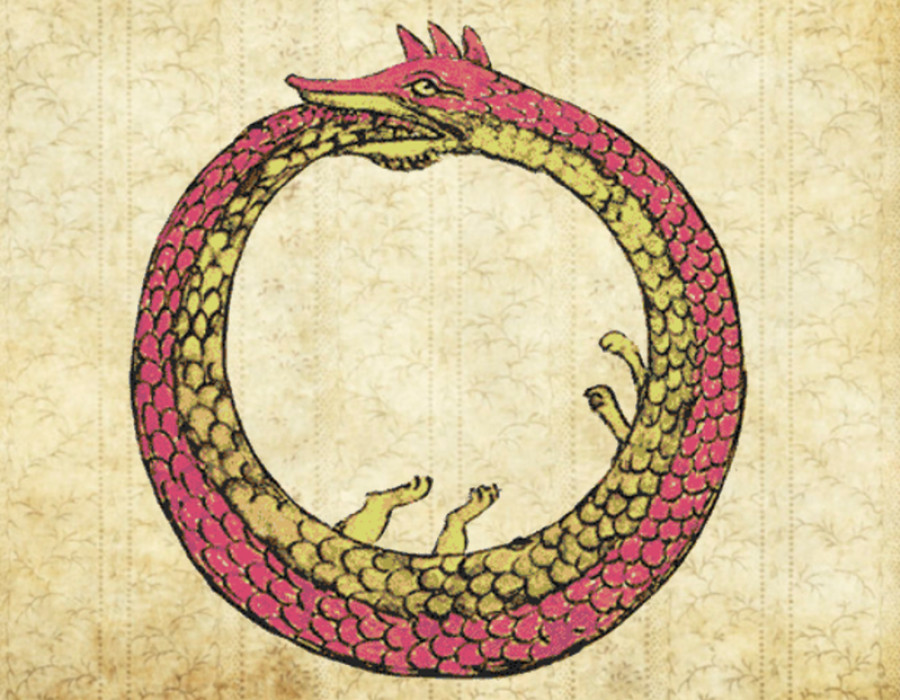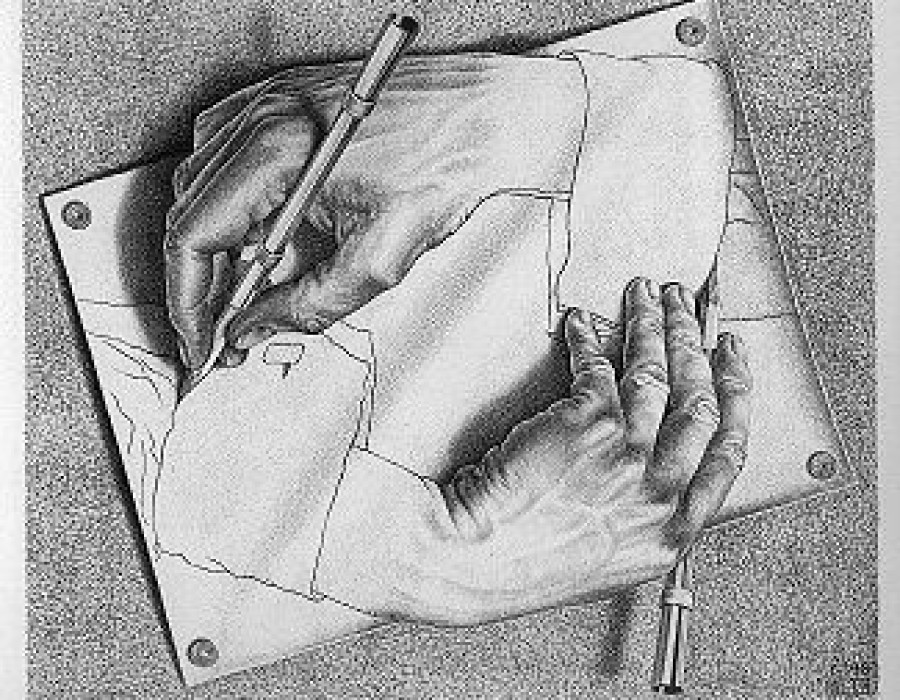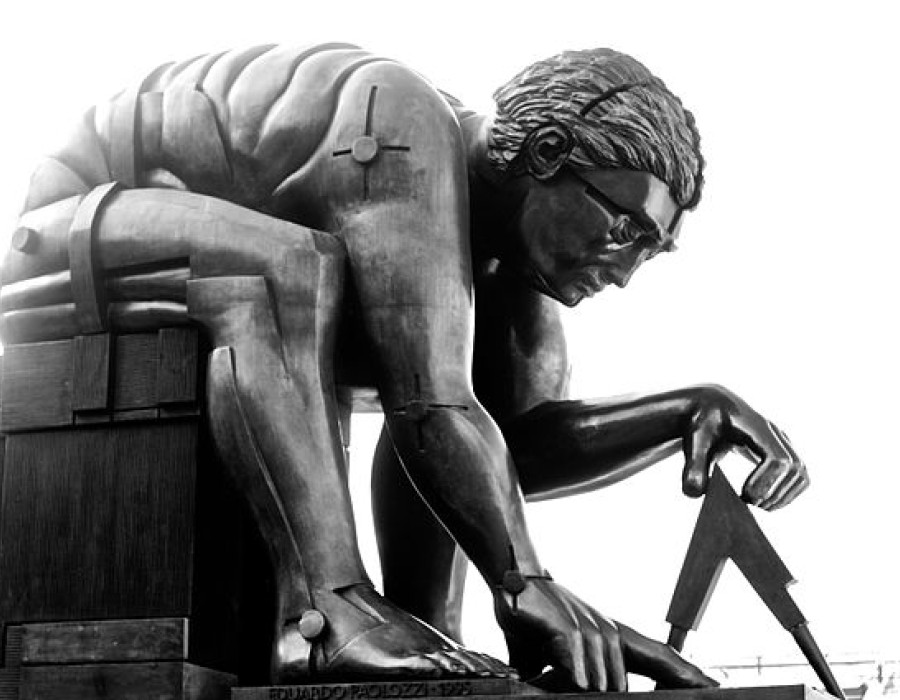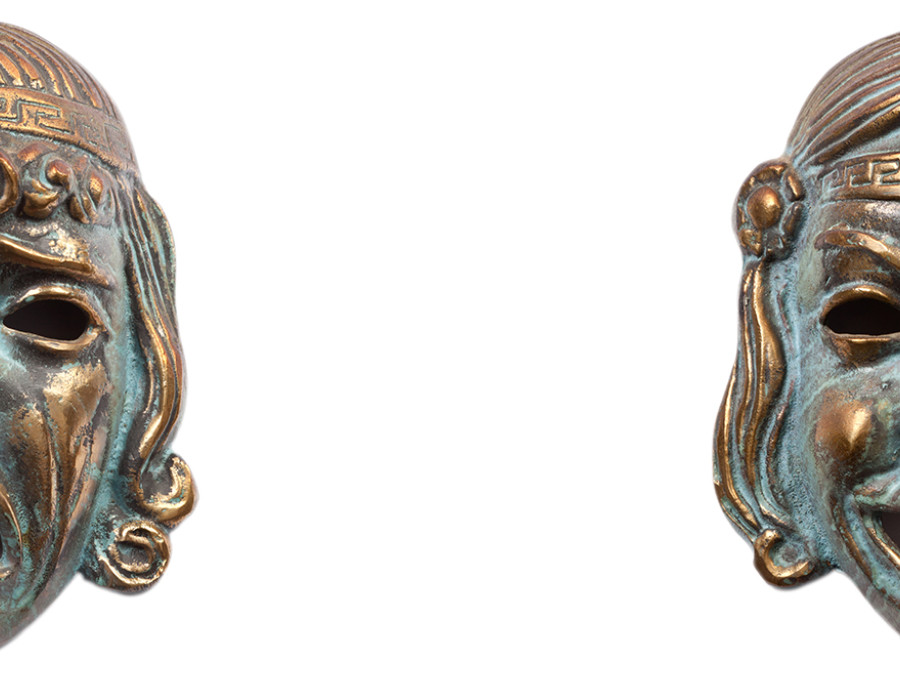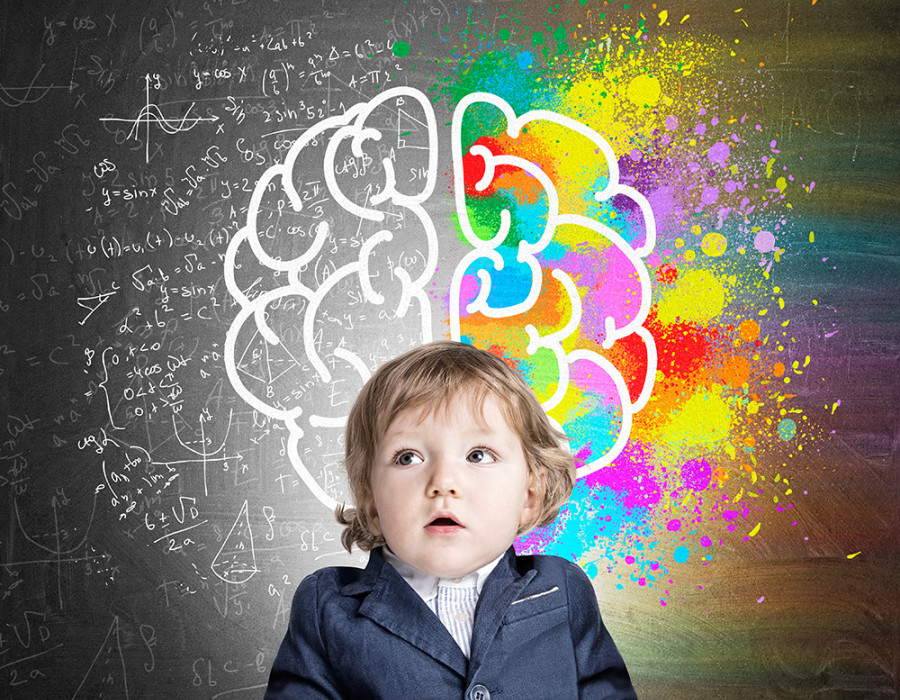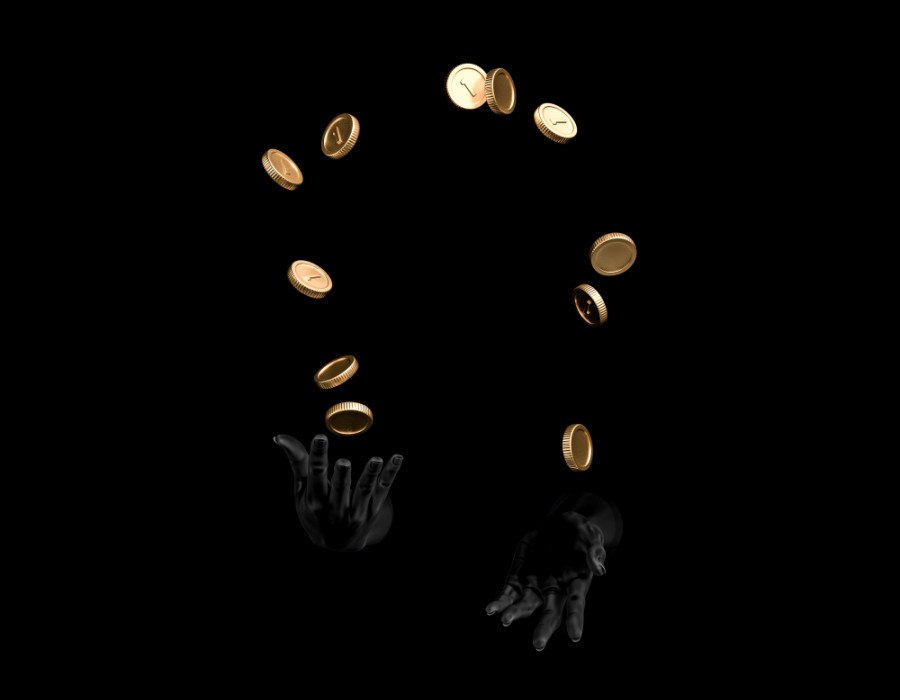On What Does Our Dignity Stand?: A Policy for Disaster (part III)
Blog
Our sense of incompleteness is not an inherent part of human biology. Martin argues that the values of modernity may in fact be fueling this feeling of lack.

Paolozzi's 1995 statue Newton in the piazza of the British Library
By {{{1}}} - Flickr: Newton Statue Eduardo Paolozzi, CC BY-SA 2.0, https://commons.wikimedia.org/w/index.php?curid=12868250
I felt that we were approaching extremely delicate ground here, verging on the mysteries of the tribe. “After all,” he said, “we are a people who live on the roof of the world. We are the sons of Father Sun, and with our religion we daily help our father to go across the sky. We do this not only for ourselves but for the whole world. If we were to cease practicing our religion, in ten years the sun would no longer rise. Then it would be night forever.”
I then realized on what the “dignity”, the tranquil composure of the individual Indian, was founded. It springs from his being a son of the sun; his life is cosmologically meaningful, for he helps the father and preserver of all life in his daily rise and descent. If we set against this our own self-justifications, the meaning of our own lives as it is formulated by our reason, we cannot help but see our poverty.
from Memories, Dreams & Reflections: the biography of C.G. Jung
The American mythologist Joseph Campbell once opined against the lack of meaning for those of us who are entering the later stages of life. He said that here in the West we are more concerned with our golf handicap than in coming to terms with our own mortality.
I have to say that my father, an avid golfer for the whole of his life, obtained a great amount of satisfaction from the sport, so I’m not going to follow Campbell in knocking those who like to swing a 9 iron and wear Pringle sweaters and slacks. However, I do accept the question that is contained in his comment. For Campbell and for his friend Carl Jung, quoted above, the question of meaning was wrapped up in identifying the myths we live by.
Carl Jung was the once-fêted disciple of Sigmund Freud. He played the hot-headed Rottweiler to Freud’s more paternalistic family man, and developed a view that our individual lives were lived within a matrix of mythic forms and perspectives. For Freud, the meaning of our lives was given to us by the norms of society. Our adaptation to these norms was the measure of our wellness. Conversely the lack of adaptation was to be considered a pathology. Jung, who split with Freud in the early years of the 20th century, discovered a more inward source of meaning: the myths by which we lived. It didn’t matter whether these myths were lived consciously or unconsciously. It would be a mistake, however, to regard the views of these two great thinkers as mutually exclusive. In his interpretation of the Greek myth of Oedipus, Freud also tries to make conscious a myth by which we live. He tries to show that the central family dynamic of this story - King Oedipus falls in love with his mother and murders his father - is a living myth that actually shapes our psyche and adaptation to the world. Jung on the other hand sought to help his patients to ‘individuate’ or adapt to their inward, imagined reality as well as the outward forms of their life.
In his autobiography, Memories, Dreams, Reflections, Jung states that in order to see yourself
clearly, you need an outside point of view. He recognised that the analyst or therapist fulfils this role for the patient. So when Jung wanted to learn more about the hidden aspects of the European psyche, he left Europe and asked those who interacted with Europeans what they saw when they looked at us. He traveled to Africa and to the Americas and asked the Indigenous peoples everywhere what they thought of Europeans.
“See,” Ochwiay Biano said, how cruel the whites are: their lips are thin, their noses sharp, their faces furrowed and distorted by holes. Their eyes have a staring expression. They are always seeking something. What are they seeking? The whites always want something; they are always uneasy and restless. We do not know what they want. We do not understand them. We think that they are mad.” I asked him why he thought the whites were all mad.
“They say they think with their heads,” he replied.
“Why, of course. What do you think with?” I asked him in surprise.
“We think here,” he said, indicating his heart.”
from Memories, Dreams, & Reflections
Ochwiay Biano, an elder of the Taos Pueblo tribe in New Mexico, is pointing to a more holistic way of thinking about the world. Jung’s quest to understand what is missing in the European is being answered here. It is why I believe Jung included this exchange in his memoir. Ochwiay starts with what he sees: thin lips, sharp noses. To the ‘head’ thinker this description would seem at best irrelevant and at worst racist. However, I believe Ochwiay is painting a picture here. What he communicates is not a physical portrait of the ‘white man’, but a certain feeling. It is the heart that ‘thinks’ with this feeling. It is not that thinking with the heart excludes the head but it opens up an additional dimension that thinking only with the head excludes.
Are we Europeans mad because we only think with our heads? By ‘Europeans’ I would include today not only whites, but anyone of whatever ancestral background who has been through and is affected by our Western schooling system. It may not be true that we think only with our heads, but it’s fair to say that our culture still values head-only thinking over any other type of knowledge.
In Climate - a New Story, Charles Eisenstein criticises the Green Movement’s fixation on carbon management and the ‘carbon footprint’. He believes we’re trying to find solutions to the environmental problems we face which are unconnected with the environment we’re trying to save. Is it okay to cut down a forest here, as long as you plant one over there? According to the head, this may be acceptable because it balances the carbon books. For Eisenstein, however, this solution lacks any feeling for the environment as a living being. It lacks heart, which is precisely the problem that got us into trouble with the environment in the first place.
So what does it actually mean to think only with our heads and what happens when we start to think with our hearts instead? We will delve into these questions more deeply in the next article in this series.
The Zen Gateway Blog
Dharma, Culture, Philosophy & Life-ways


